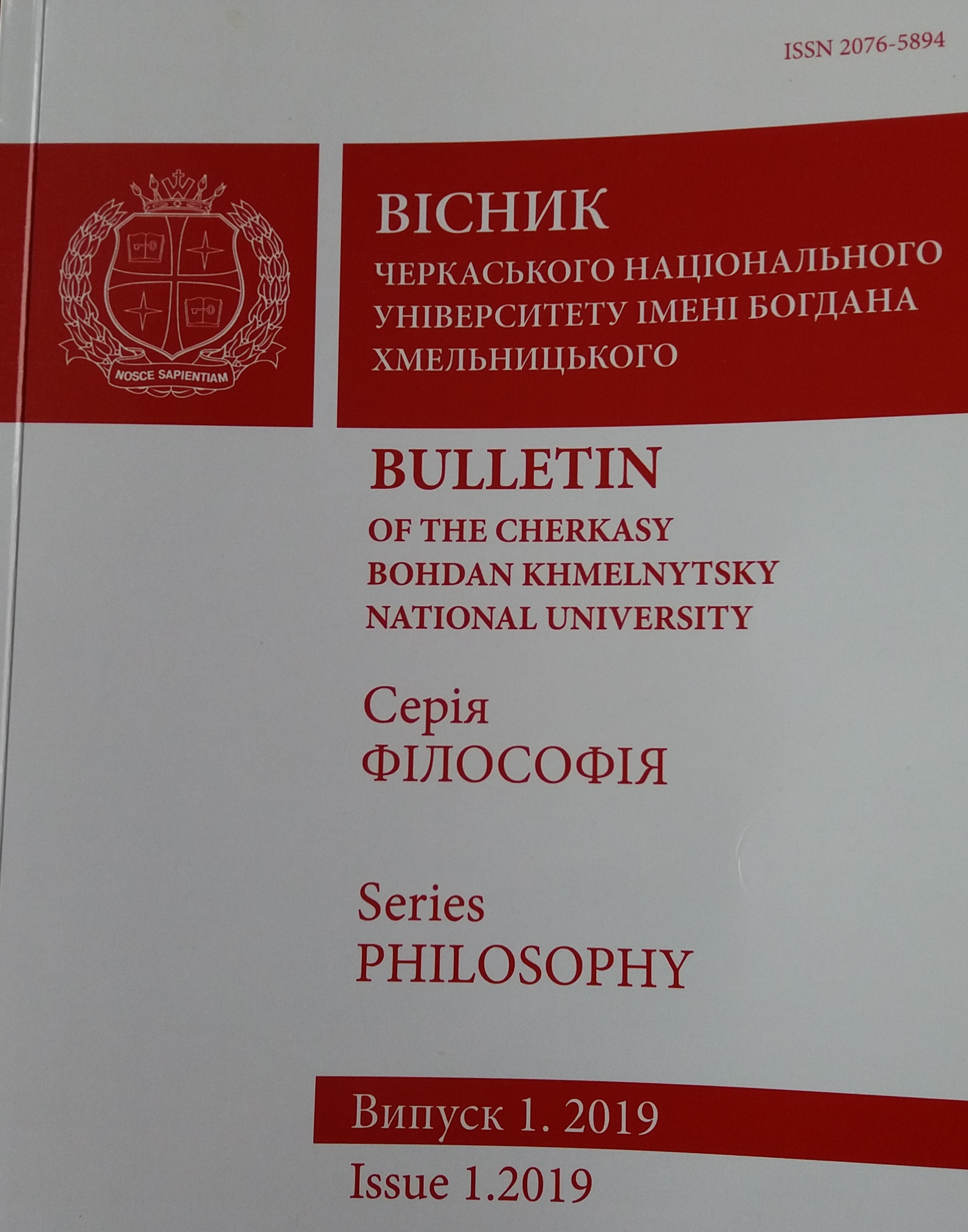ONTOLOGY OF MUSIC: TO THE DEFINITION OF FUNDAMENTALS OF THE PHILOSOPHY OF MUSIC
Main Article Content
Abstract
Summary. Introduction. A necessary condition for building an integral philosophical theory of music is the study of its ontological nature. In modern philosophy and science, a number of approaches are used to solve this problem. That is why it is fundamentally important to determine their theoretical and methodological potential. In a generalized form, we are talking about a comparative analysis of the fundamental ontological, applied and concrete scientific approaches. It should be borne in mind that this analysis is done in the conditions of profound changes in the ideas of rationality and criticism of classical philosophy.
Purpose. The study of the nature of musical being from the standpoint of a fundamentally ontological approach in order to ascertain its possibilities in determining the fundamental ideas of the philosophy of music.
Methods. Reduction, phenomenological description, dialectical analysis, hermeneutic interpretation, comparative descriptive method. Results. The subject of dialectical analysis and phenomenological description is pure becoming as the basis of musical existence (A. Losev). From the dialectical point of view, pure becoming is considered as a continuous transition of being into nothing and nothing into being (Hegel). The erroneous points of view on the essence of music, the way a musical work exists, its relation to reality and the specifics of its aesthetic perception are clarified and critically analyzed. Phenomenological description revealed the fundamental principles of the existence of musical formation. Hermeneutic interpretation and comparative descriptive analysis of the results obtained revealed a collision between the rhizomorphic formation (G. Deleuze, F. Guattari) of pure becoming and the musical form.
Originality. The fundamental ontological approach to the study of music reveals its essential, universal and constant foundations. As a result, prerequisites are created for the construction and development of a holistic philosophical theory, as well as the formation of strategies for studying concrete historical forms of music in the past, present and future. An important feature of such a theory should be the unity and mutual complementarity of classical and postclassical approaches.
Conclusion Among the immediate topics of such research, let us highlight the ontological problems of the form and mode of existence of a musical work, its artistic and aesthetic values, semantic content and ideas.
Article Details
References
Uzelac, M. (2013). Philosophy of music of A. F. Losev. Retrieved from http://www.uzelac.eu/Strane_studije/33_Losev_2013.pdf (in Russ.)
Heidegger, M. (2003). Being and time. Kharkov: Folio (in Russ.)
Losev, A. F. (1991). The main question of the philosophy of music. Philosophy. Mythology. Culture, 315-336. Moscow: Politizdat (in Russ.)
Ingarden, R. (2000). On psychology and psychologism in the science of literature. Sketches from the philosophy of literature. Krakow: Znak (in Pol.)
Losev, A. F. (1995). The structure of artistic attitude. Form - Style - Expression, 297-320. Moscow: Thought (in Russ.)
Hegel, Georg Wilhelm Friedrich. (1970). Science of Logic. Science of Logic, 1. Moscow: Thought (in Russ.)
Shinkaruk, V. I. (1964). Logic, dialectics and Hegel's theory of knowledge. Kiev: Publishing House of Kiev University (in Russ.)
Husserl, E. (1995). Logical Studies: Prolegomens to Pure Logic. Kiev: Venturi (in Russ.)
Ingarden, Roman. (1962). A piece of music and the question of its identity. Studies on aesthetics, 403-570. Moscow: Foreign Literature Publishing House (in Russ.)
Gartman, Nikolay (2003). On the basis of ontology. St. Petersburg: Science (in Russ.)
Heidegger, M. (2008). Source of artistic creation. Moscow: Academic Project (in Russ.)
Husserl, Edmund (2001). Cartesian meditations. St. Petersburg: Science (in Russ.)
Ingarden, Roman (1962). On the various cognitions of literary works. Studies in Aesthetics, 114-155. Moscow: Foreign Literature Publishing House (in Russ.)
Fifteen Questions with Lubomyr Melnyk. Retrieved from https://15questions.net/interview/fifteen-questions-lubomyr-melnyk/page-1/
Deleuze, Gilles, Guattari, Felix. Introduction: Rhizome. Capitalism and schizophrenia, 2: Thousand plateau. Retrieved from https://www.rulit.me/books/kapitalizm-i-shizofreniya-kniga-2-tysyacha-plato-read-250949-1.html
Lubomyr Melnyk Continuos music. A New Language for the Piano. Retrieved from http://www.lubomyr.com/continuousmusic.html
Pociej Bohdan. (1995). Roman Ingarden and Polish musicological mind. In the circle of Roman Ingarden philosophy. Kraków: PWN (in Pol.)

